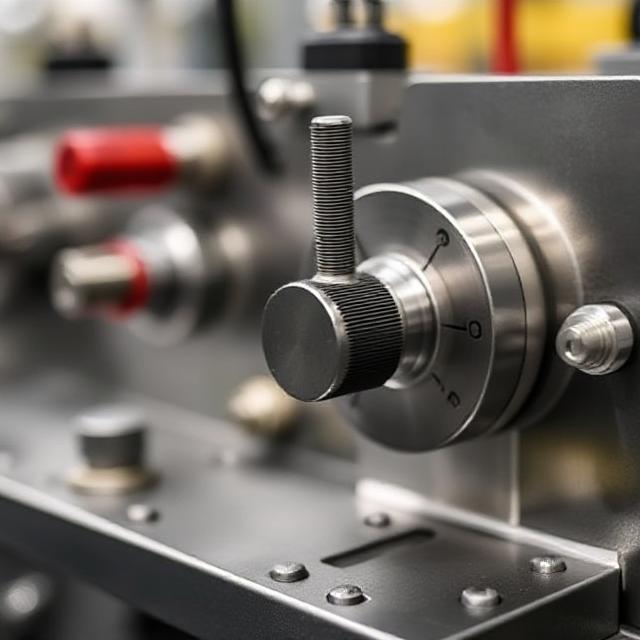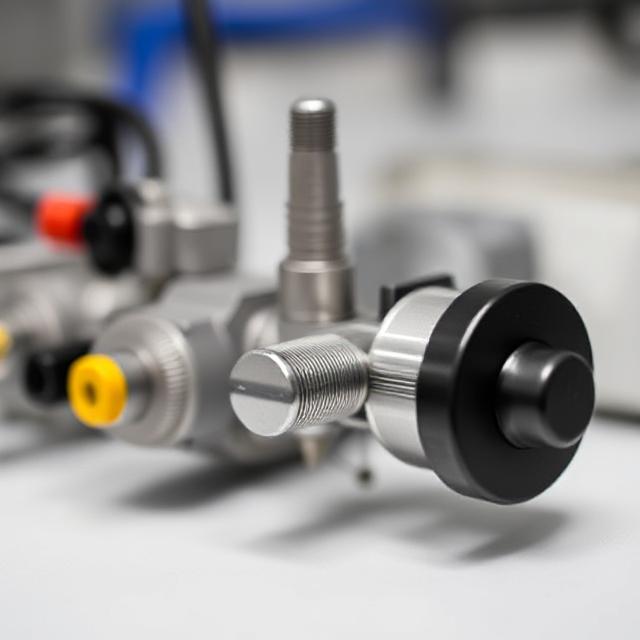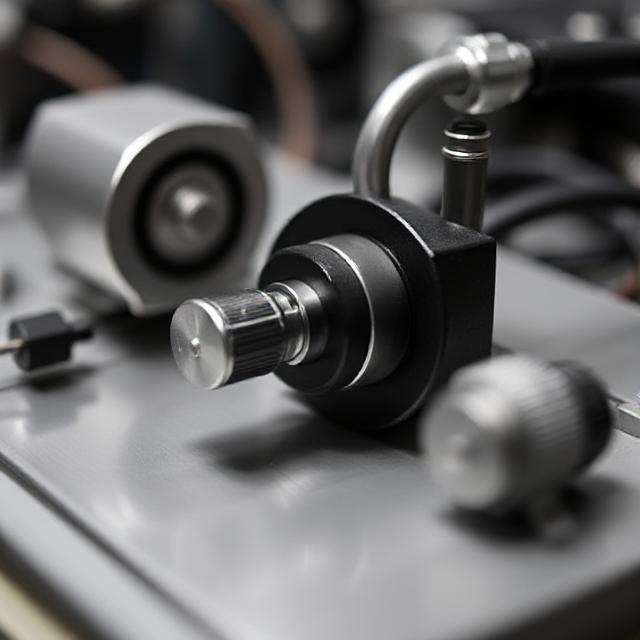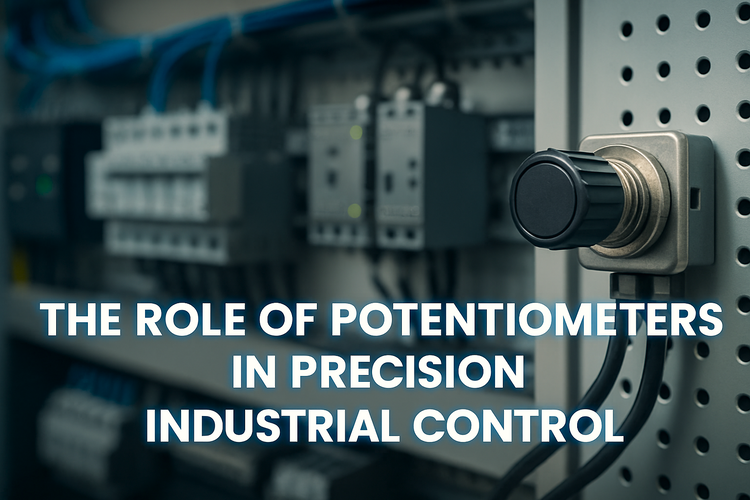The Importance of Potentiometers in Precision Industrial Control
Industrial automation relies on highly accurate control systems to ensure smooth and efficient operations across various industries. From manufacturing units to energy plants and marine automation, precision control is the backbone of modern machinery. Among the many components that enable such accuracy, potentiometers play a critical role. These simple yet powerful devices are essential for measuring, controlling, and adjusting electrical signals within industrial systems.
In this detailed blog, we will explore what potentiometers are, their types, applications, benefits, and why they are important in precision industrial control systems.
What are Potentiometers?

A potentiometer, often called a "pot," is an adjustable resistor used to measure or regulate electrical voltage. It is a three-terminal device consisting of a resistive element, a sliding contact, and two fixed ends. By adjusting the wiper, the potentiometer allows for smooth variation of resistance, which in turn adjusts the voltage output.
In industrial automation, potentiometers are widely used for signal adjustment, calibration, and controlling the input of machines. Their simple mechanism, reliability, and cost-effectiveness make them a preferred choice for a variety of applications, including motor speed control, position sensing, and voltage regulation.
Why Precision Control is Important in Industry
Precision control is vital to ensure that machines and systems operate at optimal performance with minimal errors. Even a slight deviation in control can lead to costly downtime, product defects, or safety hazards. Potentiometers offer an easy way to fine-tune parameters like speed, pressure, or temperature in automation systems.
For example:
- In conveyor belt systems, potentiometers help control the exact speed.
- In robotic arms, they assist in precise movement positioning.
- In HVAC systems, they enable accurate adjustment of airflow and temperature.
By integrating potentiometers, industries can achieve greater operational efficiency, reduce energy consumption, and maintain high-quality standards.
Types of Potentiometers Used in Industrial Applications

Potentiometers are available in various designs; each suited to specific industrial requirements. Some of the common types include:
1. Rotary Potentiometers
Structure: Circular resistive track with a rotating wiper.
Application: Used for adjusting parameters like speed or volume.
Example: Motor speed control panels in factories.
2. Linear Potentiometers
Structure: Straight resistive track with a sliding wiper.
Application: Best for applications requiring linear motion measurement, such as in CNC machines.
3. Digital Potentiometers
Structure: Electronic version of traditional potentiometers, controlled digitally.
Application: Used in modern automation systems for high-precision adjustments without mechanical wear.
4. Multi-turn Potentiometers
Structure: Requires multiple rotations to reach the maximum resistance value.
Application: Ideal for applications where fine-tuning is essential, such as in calibration of instrumentation.
5. Wire-Wound Potentiometers
Structure: Resistance element made of wire winding.
Application: Used in high-power and heavy-duty applications due to their ability to handle higher currents.
Key Features of Industrial Potentiometers
High Precision: Provides accurate voltage division for precise control.
Durability: Built to withstand harsh industrial conditions such as dust, vibration, and temperature variations.
Compact Design: Easy to integrate into control panels and machines.
Customizable Ranges: Available in different resistance values to suit specific needs.
Long Lifespan: Mechanical and digital potentiometers are designed for extended service life with minimal maintenance.
Applications of Potentiometers in Industrial Control
Potentiometers are used across numerous industries for a wide range of applications:
1. Motor Speed Control
- Potentiometers are commonly used in Variable Frequency Drives (VFDs) and motor control systems to set or adjust speed accurately.
2. Position and Displacement Sensing
- In automation systems like robotic arms or CNC machines, linear potentiometers act as position sensors to ensure accurate movement and placement.
3. Control Panels and User Interfaces
- In operator panels, potentiometers are used as manual control knobs to adjust parameters such as temperature, pressure, or volume.
4. Audio and Signal Equipment
- Used for adjusting audio levels in communication systems within industrial settings.
5. Calibration of Instruments
- Potentiometers are crucial in fine-tuning and calibrating measuring devices for optimal performance.
Advantages of Using Potentiometers in Industrial Automation

Profitable Solution: Potentiometers are affordable compared to other advanced control devices.
Versatility: Suitable for both analog and digital systems.
Ease of Use: Simple design allows quick adjustments without technical expertise.
Reliability: Mechanical models are robust and capable of performing well in challenging environments.
Energy Efficiency: Helps regulate electrical signals, contributing to reduced energy wastage.
Potentiometers vs. Other Control Devices
While modern automation often uses advanced sensors and digital controllers, potentiometers remain relevant due to their simplicity and reliability. Unlike complex digital systems, potentiometers do not require programming or complex calibration. They are especially useful in manual control settings where quick and straightforward adjustments are necessary.
Future of Potentiometers in Industrial Automation
With the rise of Industry 4.0 and smart automation, digital potentiometers are gaining popularity. These versions offer precise electronic control and are compatible with microcontrollers and Programmable Logic Controllers. The combination of traditional mechanical reliability with digital precision ensures that potentiometers will continue to play a vital role in industrial automation.
Benefits of Precision Control with Potentiometers
Improved Accuracy: Ensures machinery performs tasks with minimal error.
Reduced Wear and Tear: By controlling voltage and current efficiently, potentiometers help reduce equipment strain.
Safety Assurance: Accurate control of parameters like temperature and pressure minimizes operational risks.
Enhanced Productivity: Smooth operation of equipment leads to higher productivity and reduced downtime.
Why Choose Potentiometers for Industrial Applications?
Proven Technology: Potentiometers have been used for decades and have a proven track record of reliability.
Adaptability: Works well with both legacy systems and modern automation technologies.
Customization: Can be tailored in terms of resistance, size, and mounting style to meet specific industrial needs.
Robust Performance: Designed to operate effectively even in extreme industrial conditions.
Potentiometers are crucial components in precision industrial control, providing a perfect balance of simplicity, reliability, and accuracy. Whether it’s controlling motor speed, calibrating instruments, or fine-tuning automation processes, potentiometers offer a practical solution for industries aiming to optimize their operations.
As technology continues to evolve, digital potentiometers are bridging the gap between traditional control methods and modern automation systems. Industries looking to enhance efficiency and precision will continue to rely on these versatile components for years to come.

